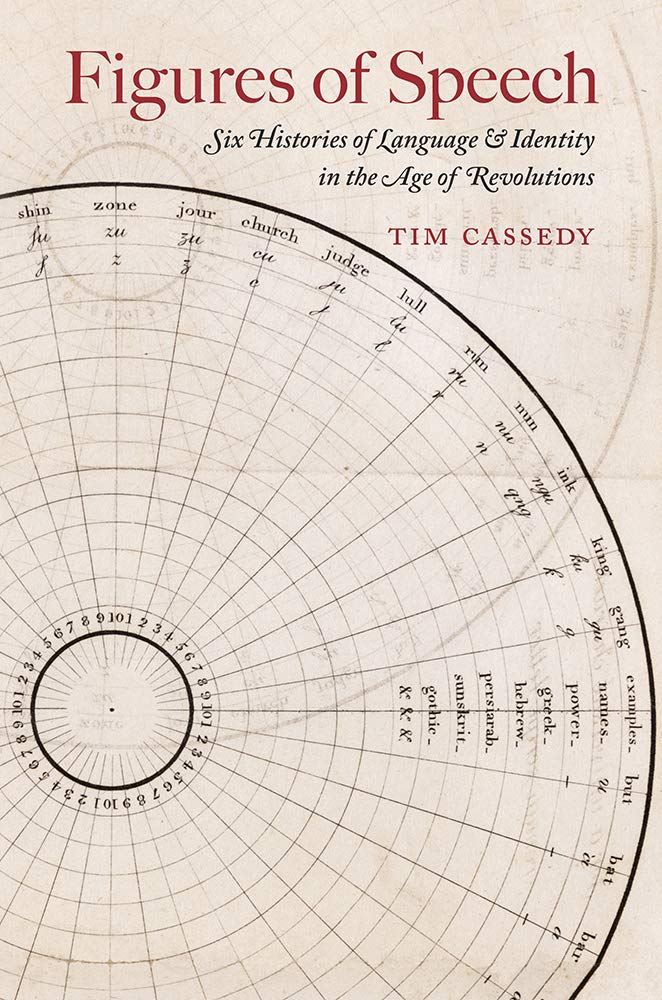
Tim Cassedy
associate professor of English
Southern Methodist University
214.768.4976
tcassedy@smu.edu
Figures of Speech: Six Histories of Language and Identity in the Age of Revolutions
University of Iowa Press, 2019
Language played an important role at the turn of the nineteenth century as a marker of identity. During this time of revolution and globalization, language served as a way to categorize people within a world that appeared more diverse than ever. Linguistic differences — especially among English-speakers — seemed to validate the emerging national, racial, local, and regional identity categories that were taking shape.
Focusing on six eccentric characters — from the woman known as “Princess Caraboo” to lexicographer Noah Webster — Figures of Speech shows how perceptions about who spoke what language — and how they spoke it — helped English-speakers make sense of their rapidly globalizing world.
Winner, 26th Annual MLA First Book Prize
projects, teaching, and research
early American literature and culture; the history of reading, texts, and text technologies; eighteenth-century British and American literature
typography
selected publications
“Minimismal Monsters in Our Blood and Brains: The Patient’s Psychiatric Germ Theory of 1833.” Literature and Medicine 37:2 (2019).
“Types of Reading, Types of Pleasure: Pantographia and the Specimens of Globalization.” Word & Image 34:2 (2018).
“‘A Dictionary Which We Do Not Want’: Defining America Against Noah Webster, 1783–1810.” William and Mary Quarterly 71:2 (2014).
“Seeing the Rebel: Or, How to Do Things with Dictionaries in Nineteenth-Century America.” J19: The Journal of Nineteenth-Century Americanists 2:1 (2014).
“Historians Who Look Too Much.” Avidly, a Los Angeles Review of Books Channel. 9 Sept. 2014.
recent and upcoming presentations
“New York Undergrond: The Sinking of Manhattan Island on January 19, 1826.” C19: The Society of Nineteenth-Century Americanists. Cincinnati, Ohio. March 12–14, 2026.
“Writing Siblings: One Family, Two Lives, Nine Archives.” C19: The Society of Nineteenth-Century Americanists. Cincinnati, Ohio. March 12–14, 2026.
“My Lungs Consumed: An Archival Experiment in Nineteenth-Century Medicine.” Society of Early Americanists. South Bend, Ind. June 5–8, 2025.
